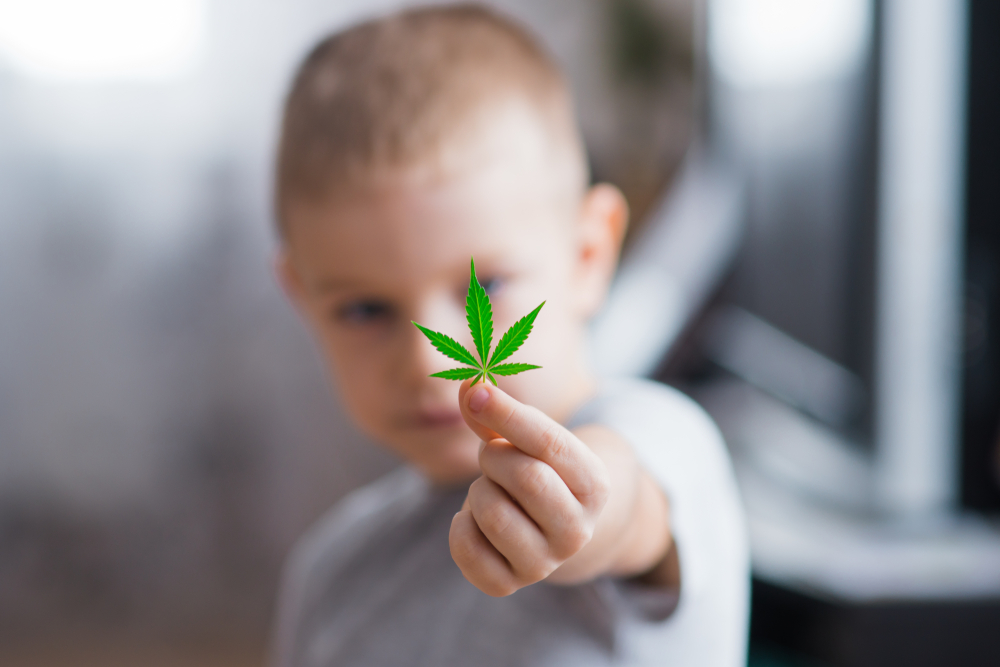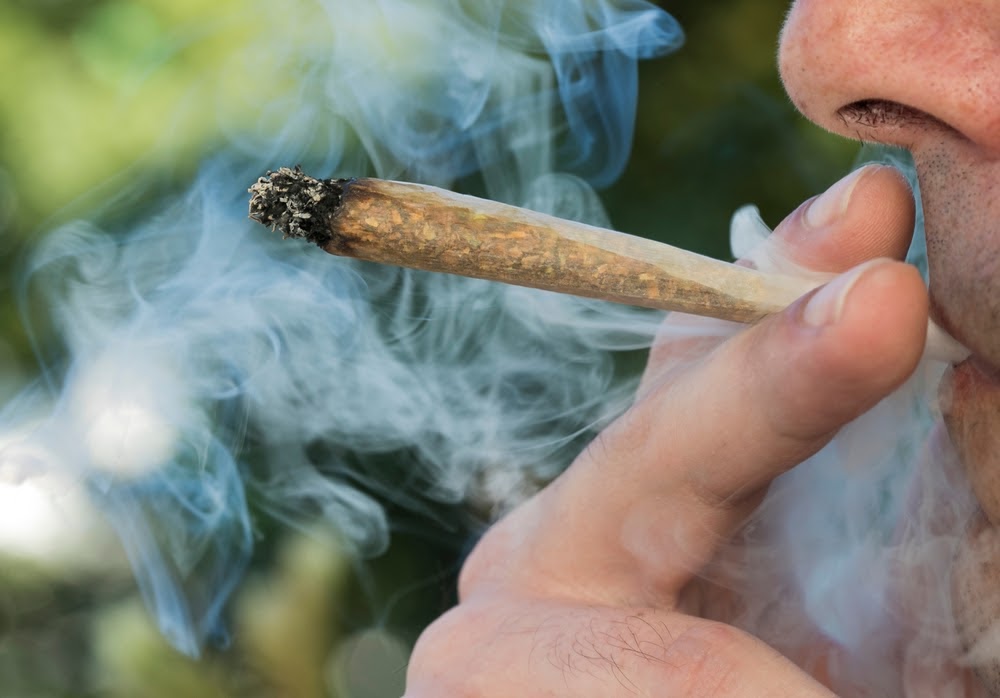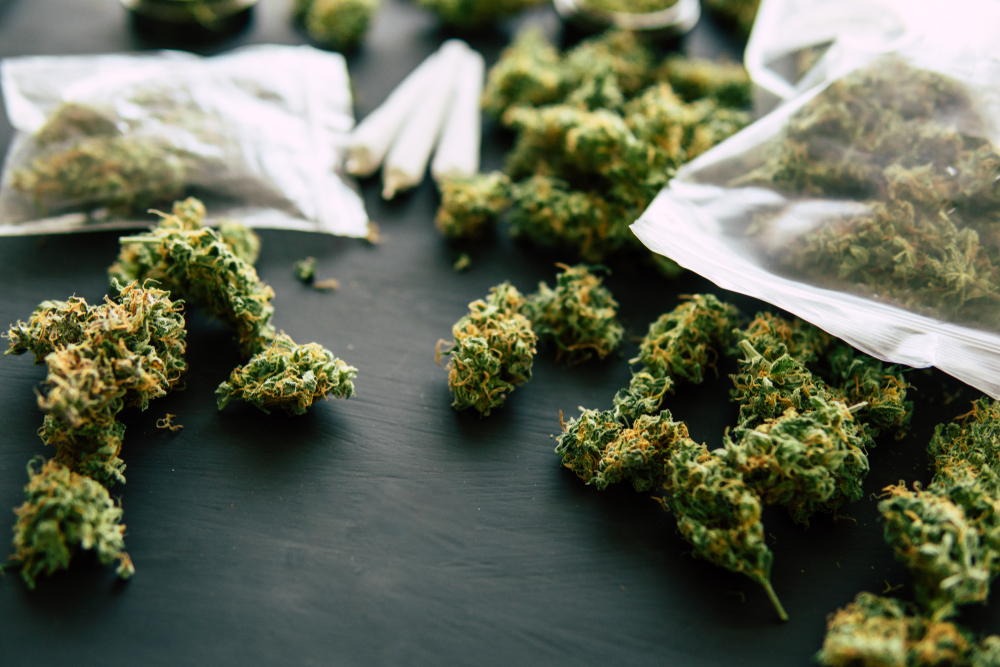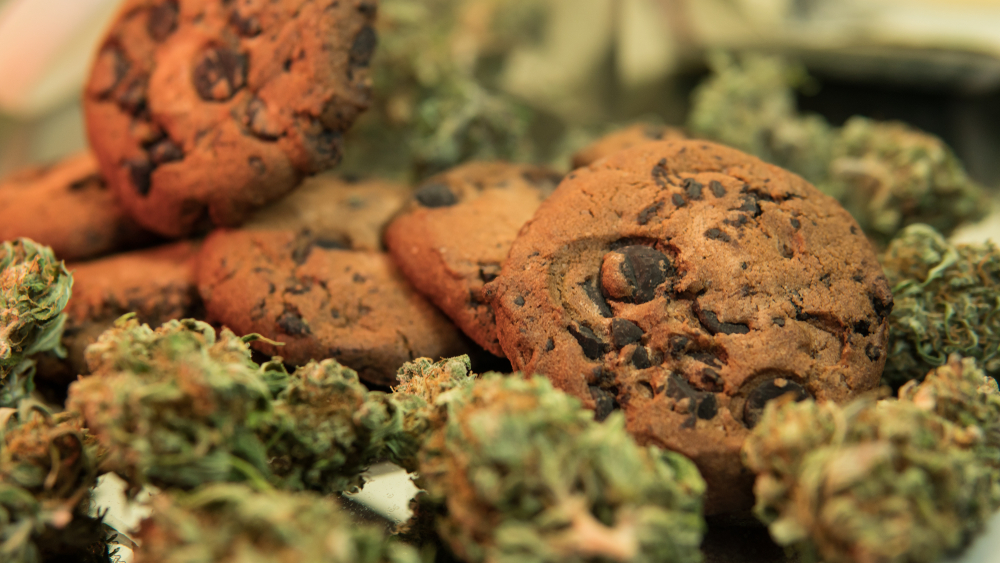Education
What to do if a Kid Eats Your Edibles?
As a responsible adult, you want to do the right thing and take every precaution to ensure that your stash box remains safe and out of the wrong hands. However, that doesn’t mean that accidents don’t happen!
With the variety of cannabis products available on the market, edibles have emerged as one of the most popular due to their accurate dosing, portability and discreetness.
That said, to an untrained eye, they’ll likely appear like regular cookies, gummies or whatever food item they are intended to resemble.
While the government has laws to reduce the risks of accidental consumption while minimizing the appeal of weed to young people and children and requires producers to clearly illustrate on packaging to “keep out of reach of children,” there may come a time when the worst-case scenario happens.
Of course, you want to take all preventative measures to ensure that kids don’t ingest edibles.
However, should it happen, it is vital to know the necessary actions to take!
Additionally, it is crucial to follow every preventative measure to ensure that this doesn’t happen in the first place.
Today, we will be outlining the various measures to take should a child accidentally ingest one or more of your edibles, how cannabis affects children, and preventative precautions to prevent such an event.
Is Weed Dangerous for Kids?
The answer to this question is a bit complicated because it’s yes and no.
Luckily, there has never been a case of an adult or a child dying from a marijuana overdose. That said, this isn’t to say that cannabis isn’t dangerous, but it isn’t fatal, either.
Ingesting a lot of THC can be harmful to a kid in the short term and, in severe cases, can send them into a comatose state if consumed in high quantities.
That said, the long-term effects are more of an issue, which is why it’s a top priority to keep your weed out of reach of kids.
Some research indicates that early weed use can cause adverse long-term effects on the brain at a young age. Such impacts include delayed cognitive function that causes children to fall back developmentally compared to their peers.
Scientific research indicates that the human brain develops into a person’s early 20s, which poses issues for repeated cannabis exposure while the brain is still in this crucial development period.
Additionally, young people who consistently use cannabis between the ages of 12 and 17 are more likely to develop related substance use disorders as adults.
That said, if a child accidentally ingests your edibles one time, it’s unlikely to impact their brain development in a significant way. The issue here is prolonged and frequent use over time.
However, to a terrified parent, the short-term effects and dangers are enough to incite panic, and understandably so.
How to Prevent Kids from Eating/Accessing Your Edibles
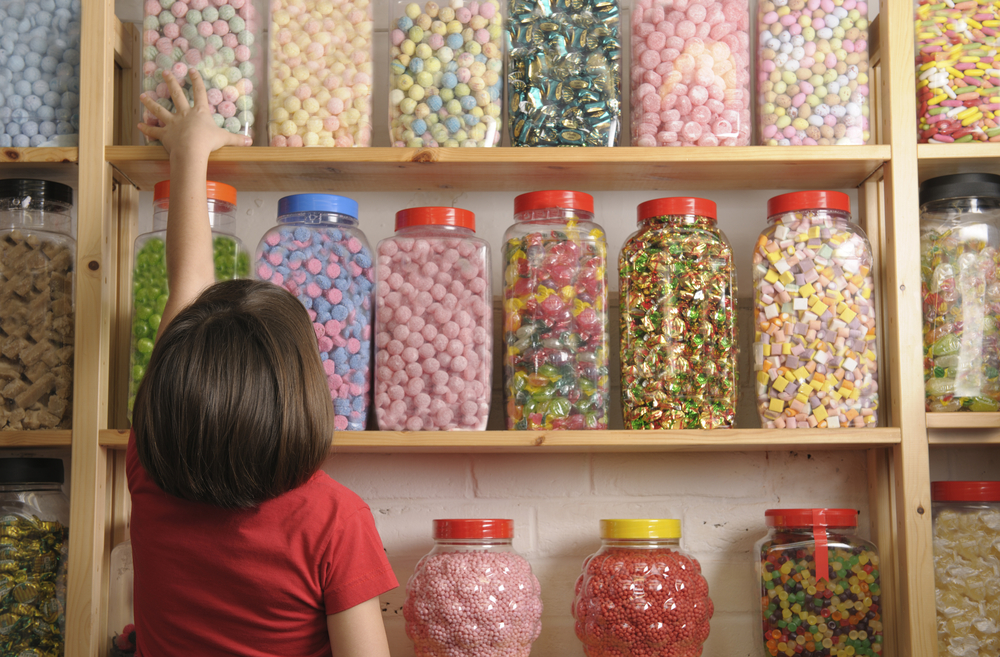
So, now that you know the inherent risks, what are some precautionary steps you can take to prevent your child or a child you know from accidentally consuming your edibles?
For many, the strategy consists of a multifaceted approach.
Keep Your Products Out of Reach
This piece of advice is among the easiest and most effective. Ultimately, one of the best ways to avoid the scenario of a child accidentally ingesting a cannabis edible is to ensure that they don’t have access to them in the first place.
Trust us. Your baked goods, like brownies, weed cookies, and space cake, will survive out of the fridge. It’s best to keep them in a locked drawer or somewhere high up that kids can’t reach. For items that need to be refrigerated, such as cannabutter, invest in a sealable, child-proofed container.
Be Open & Honest
When kids reach a certain age, they can determine for themselves the difference between right and wrong and what is and isn’t allowed.
The mature approach would be to sit them down and have an open and honest conversation.
You don’t have to indicate what the products are or the effects they have, just that they’re off-limits.
Inform the child that the gummies or other edibles you have are not a new type of candy or treat, but instead that they’re medication that they are not allowed to have.
Most of the time, kids are smarter than we give them credit for, and they’ll be able to understand the difference!
Know the Signs
Even if you keep your weed edibles out of reach and clearly state that they are off-limits, kids will be kids, and if they want something badly enough, they will find a way.
That said, knowing how to determine whether a child has ingested a cannabis edible is a crucial and essential skill to have if you plan on keeping marijuana products in the house.
This point is crucial because children are smaller and weigh less than adults and the effects will be more intense.
Symptoms will begin to present about 30 minutes to an hour after the child has ingested an edible. Signs a child may have accidentally ingested a cannabis edible include:
- Red eyes
- Loss of balance
- Lethargy/uncharacteristically tired
- Increased heart rate
- Paranoia or confusion
According to a 2017 study, lethargy is the most common side effect in kids who have accidentally consumed cannabis, with loss of coordination and balance being the second.
What to do if a Kid Eats Your Edibles
If you observe a child displaying one or more of the symptoms mentioned above, there is a chance they may have gotten into your stash.
Should this happen, here’s what you should do:
Don’t Panic
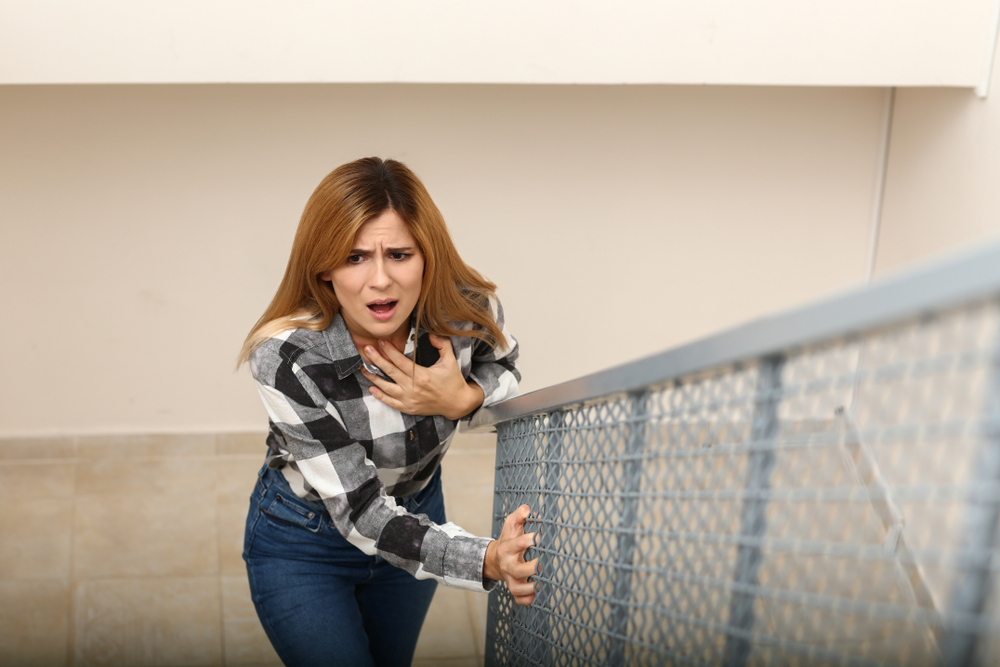
The most important thing to do is remain calm. The last thing anyone needs in this situation is to start freaking out. The child is likely already scared and confused, and inciting hysteria will only add more fuel to the fire.
Instead, calmly address the child and make them feel as comfortable as possible. Tell them to take a deep breath and ask them if they have eaten anything they shouldn’t have. If they admit to it, great, you can address the situation accordingly. Still, they may be scared of getting in trouble, which will prevent them from openly admitting it.
Reinforce that health and safety are the top priority and that you just want to make sure that they are okay and that they won’t get in trouble for being honest.
Write Everything Down
If you are able, try and figure out just how much THC the child consumed and when. Then, write it down. As you likely already know, it can take a while for edibles to kick in, and while they may be presenting some symptoms now, the effects may become more intense as time goes on.
Make a note of the various symptoms the child is experiencing and monitor them over time. Write everything down. Watch to see if any other symptoms, such as those we outlined above, start to occur, including imbalance, drowsiness and trouble breathing.
If you’re a parent, nobody knows your kids’ normal better than you. If anything seems out of the ordinary, write it down. If the child isn’t yours, any and all relevant information is crucial to refer to later.
Call Poison Control
This step is when all your notes become crucial. Once you have the number for your local poison control, the representatives will calmly walk you through the risk assessment and advise initial treatment options. From here, it is also vital to write down everything they tell you.
If the child starts to fall asleep, this isn’t necessarily a cause for alarm so long as you can wake them back up. Keep the child comfortable and calm and continue writing down symptoms as time progresses.
If you are unable to wake the child or are concerned that things are getting to a level where you don’t feel comfortable treating it on your own, it’s time to go to the emergency room. Should this be the case, be sure to take your notes regarding symptoms and the instructions relayed by poison control.
Also, be sure to bring the packaging and what’s left (if anything) of the specific product ingested. Take a deep breath and try to stay calm.
At the Hospital
Once you arrive at the hospital, no matter how scared, ashamed or embarrassed you may be, the most important thing is to be upfront and honest. Nobody is there to judge you, but the doctors and nurses need all the relevant information to address the situation appropriately.
Now is the time to give the medical professionals all the notes that you previously compiled so that they can gain the necessary insights into what’s been going on. At this point, doctors will ask for a thorough health history of the child. They will also conduct routine testing, including measuring blood pressure, monitoring breathing, and other necessary evaluations.
In most cases, this process will take a while. Staff will want to monitor the child and provide supportive care, including oxygen, until the marijuana effects wear off. There is no immediate, easy fix in these situations, just a lot of hurry up and wait.
Forgive Yourself
Ultimately, ensuring a child’s health and safety is your responsibility, and if they manage to ingest your edibles and suffer the consequences, that’s on you, not them. However, you shouldn’t tear yourself apart with guilt, either.
Sometimes, these things happen. Why do you think that most medications these days have child-proof seals? That wasn’t always the case.
We live, and we learn.
That said, such a vivid and terrifying experience should serve as a crucial reminder that learning how to store your weed properly is paramount to avoid such events from happening again.
Additionally, if you don’t have emergency numbers such as poison control written down somewhere or saved in your phone, do it now. You never know when you’re going to need it!
It’s Not the End of the World
While the best approach is prevention, you have to learn how best to prepare yourself should things go wrong. Having a child accidentally eat one of your edibles can be a horrifying and gut-wrenching experience, but it’s also avoidable if you instill best practices.
That said, should the occasion arise, remain as calm and level-headed as possible and remove shame from the mix entirely. Poison control and medical professionals are not in place to judge. They’re only there to help walk you through it and ensure that the child is safe.
Like we said, these things happen. After all, you’re human, and everyone makes mistakes.
Still, it’s vital to equip yourself with the necessary information to know how to handle and address the situation to ensure the child’s safety and health and learn from the experience to make the adjustments needed to prevent it from ever happening again.



